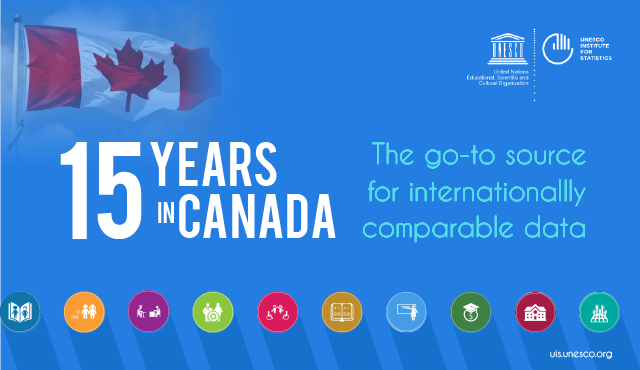Celebrating 15 Years in Canada
Share
05/12/2016
Setting standards and producing the data required to monitor progress on education goals

As the UIS Governing Board meets in Montreal from 5-6 December, the Institute is celebrating its 15th anniversary in Canada. When the Institute’s doors first opened in Montreal, a handful of staff shared just a few computers. Today, the Institute is the official and trusted source of internationally-comparable data on education, science, communication and culture.
Over the past 15 years, the international development community has come to rely on the UIS to set the standards and produce the data needed to strengthen policymaking and monitor progress – from the Millennium Development Goals to the Sustainable Development Goals (SDGs).
With UIS data, governments and international organizations have been able to evaluate progress in education, science, technology, innovation and culture and tailor their policies accordingly. Donors rely on UIS data to help target resources to ensure the greatest impact, and civil society groups have been able to hold governments to account.
So as we celebrate 15 years in Montreal, we would like to thank the Governments of Canada and Québec for their ongoing support and the Université de Montréal for hosting us.
Thanks to this support, Canada is home to the Institute which has built the world’s most comprehensive internationally-comparable education database, used by governments, UN agencies and civil society groups around the world to monitor progress towards SDG 4. The UIS also has the only global database of internationally-comparable indicators on how much countries are investing in research and development. And we are building the first database on cultural employment, which helps countries measure and strengthen the contribution of cultural practices to sustainable development.
The SDGs represent enormous challenges and opportunities for the UIS. It is going to take significant efforts and resources to produce, analyse and make good use of all the statistics that are needed. But with the support of donors and countries like Canada, we can deliver on our mandate to serve as the official data source for SDG 4 and related targets in science, culture and communication. Canada is in the spotlight, with its positive international profile. This could be the moment for Canada to argue for more and better data at the United Nations, and at any other international forum charting a course for human development. This would reaffirm Canada’s position at the heart of the push for sustainable global development.